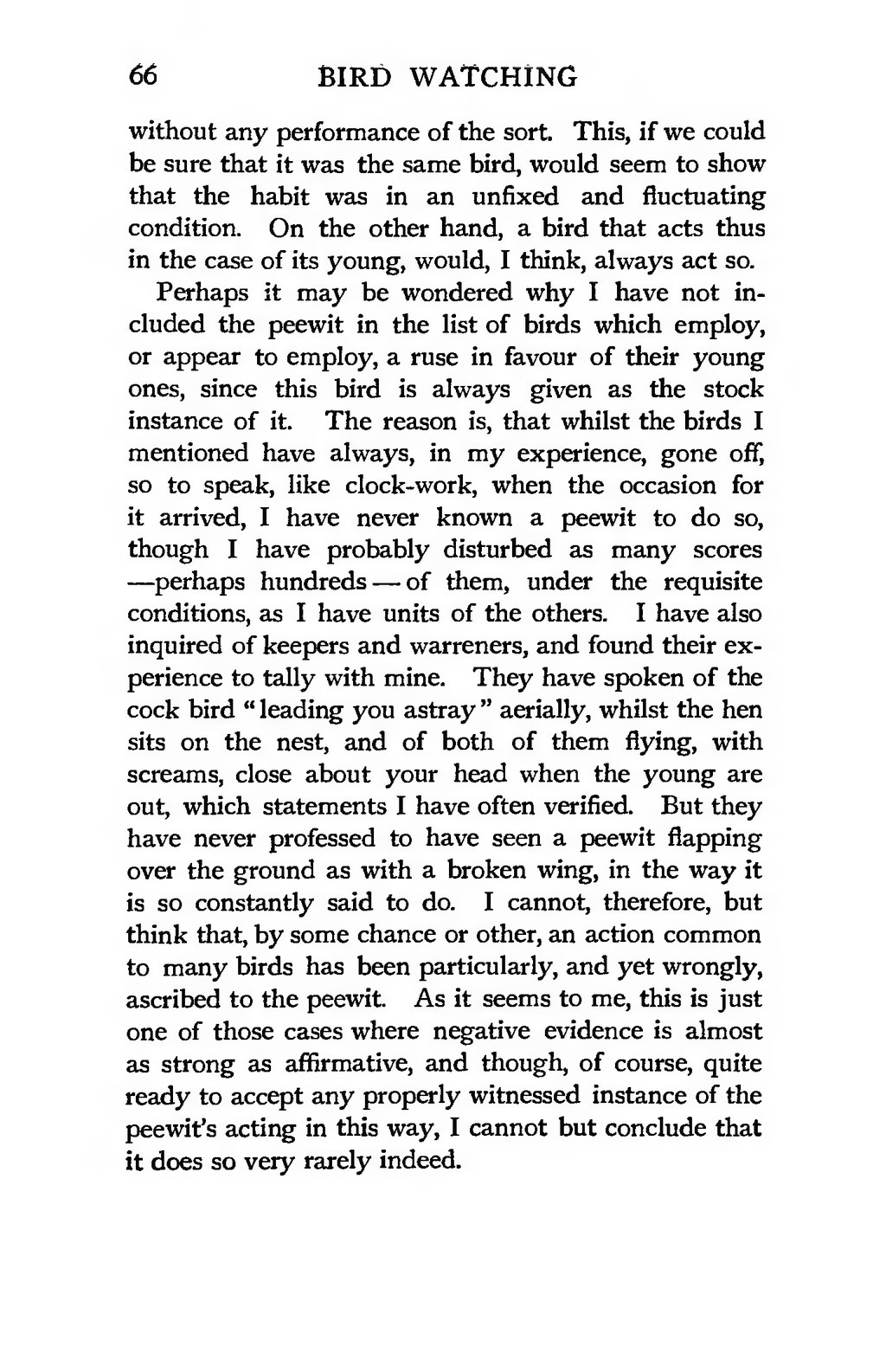without any performance of the sort. This, if we could be sure that it was the same bird, would seem to show that the habit was in an unfixed and fluctuating condition. On the other hand, a bird that acts thus in the case of its young, would, I think, always act so.
Perhaps it may be wondered why I have not included the peewit in the list of birds which employ, or appear to employ, a ruse in favour of their young ones, since this bird is always given as the stock instance of it. The reason is, that whilst the birds I mentioned have always, in my experience, gone off, so to speak, like clock-work, when the occasion for it arrived, I have never known a peewit to do so, though I have probably disturbed as many scores—perhaps hundreds—of them, under the requisite conditions, as I have units of the others. I have also inquired of keepers and warreners, and found their experience to tally with mine. They have spoken of the cock bird "leading you astray" aerially, whilst the hen sits on the nest, and of both of them flying, with screams, close about your head when the young are out, which statements I have often verified. But they have never professed to have seen a peewit flapping over the ground as with a broken wing, in the way it is so constantly said to do. I cannot, therefore, but think that, by some chance or other, an action common to many birds has been particularly, and yet wrongly, ascribed to the peewit. As it seems to me, this is just one of those cases where negative evidence is almost as strong as affirmative, and though, of course, quite ready to accept any properly witnessed instance of the peewit's acting in this way, I cannot but conclude that it does so very rarely indeed.
